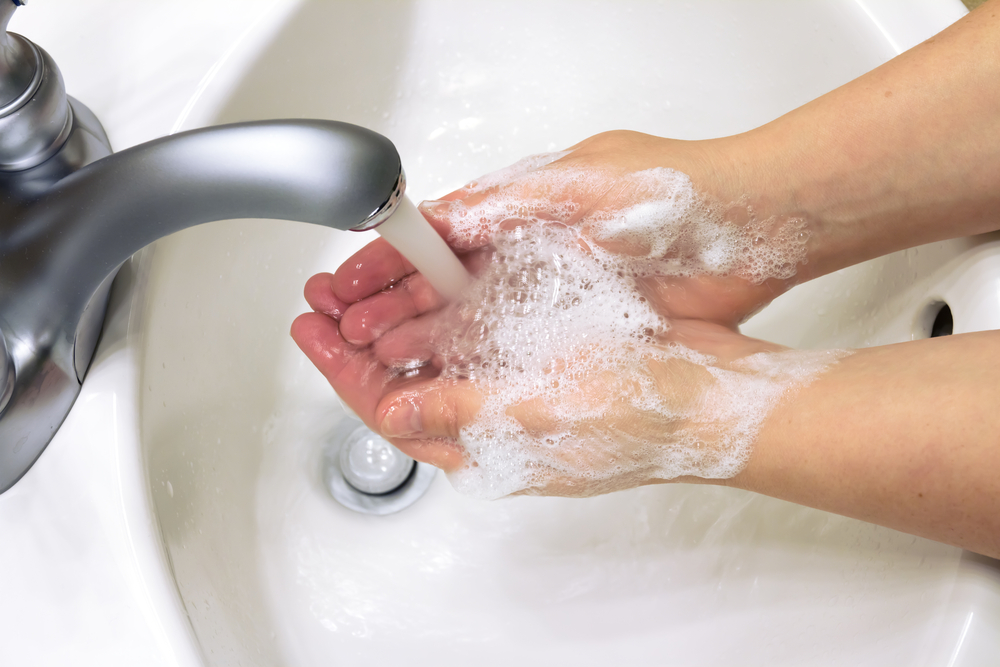What You Should Really Be Doing about the COVID-19 Pandemic
 Since the beginning of this year, much of the world has been put on edge by coverage of the COVID-19 (or coronavirus) pandemic. This illness, which was first found in China, is one that has never been seen before. It quickly spread to numerous other countries and was soon declared a pandemic, leading many people to wonder what they should be doing to protect themselves. Here are a few tips about what you should and should not be doing in response to this global health crisis.
Since the beginning of this year, much of the world has been put on edge by coverage of the COVID-19 (or coronavirus) pandemic. This illness, which was first found in China, is one that has never been seen before. It quickly spread to numerous other countries and was soon declared a pandemic, leading many people to wonder what they should be doing to protect themselves. Here are a few tips about what you should and should not be doing in response to this global health crisis.
#1. Stocking Up Isn’t Necessary
First and foremost, you don’t need to rush out and stock up on emergency supplies. Many people around the country have responded to the COVID-19 outbreak by purchasing large quantities of household essentials such as toilet paper, water bottles, and other emergency supplies. This is not necessary, as there is no indication that any area of the United States will be placed under a mandatory quarantine. You will continue to be able to go about your day as normal.
In fact, this desire to stock up on items creates large crowds in stores that increases the risk of spreading viruses among the general population. It is far better to continue your normal routine of shopping rather than trying to prepare for an event that is unlikely to ever occur.
#2. Do Buy Extra Sanitizing Products
If there are any purchases that are going to help prevent the spread of COVID-19, it is the purchase of sanitizing products. So, if you don’t have hand sanitizer, hand soap, and disinfecting cleaners in your home, it is well worth your time to purchase these products. (If you’re having trouble finding some of these products, most Medical Xpress locations carry hand sanitizer and other medical-grade cleaners.)
You may want to consider keeping small bottles of hand sanitizer in your car, in your purse or other bag, as well as in your home. While not as effective as washing with soap and water, having these options available to you while you’re on the go can be extremely helpful.
#3. Avoid Large Crowds
COVID-19 is primarily spread through airborne particles and direct contact with an infected individual. So, naturally, the more people you’re exposed to on a daily basis, the higher your risk of infection. Whenever possible, avoid large gatherings of people, and consider opting out of shaking hands with others. While you don’t need to shut yourself in your home, making conscientious choices about how frequently you expose yourself to others is recommended.
#4. Sanitize before You Touch
Have you ever thought about how many hands touch the same things that you touch on a daily basis? Any time you go out in public, you touch surfaces that countless others have touched as well. Do your best to sanitize these surfaces before you touch them.
For example, use sanitizing wipes on gym equipment before you use it. You should also sanitize grocery carts before touching the bars to prevent the spread of germs; most stores provide these for you. While you can’t sanitize every surface that you touch, try to be aware of the things you’re putting your hands on, and do your best to wipe those surfaces down before putting your hands on them.
#5. Use Face Masks When Necessary
The CDC recommends those who have any signs of illness, including mild symptoms, to wear a filtered face mask when around other individuals. This is because masks help to contain the spread of the virus by blocking some of the germs as the individual coughs and sneezes. However, even if there are no signs of illness, the CDC is currently suggesting all individuals should wear a multi-layer cloth face mask with a filter to further reduce the spread of COVID-19 as this virus is thought to be transmitted by carriers who are not experiencing symptoms.
When wearing a cloth face mask, avoid increasing your risk of infection by properly fitting a clean mask with washed hands. Make any necessary adjustments at the back of the head or around the ears instead of touching your face. As moisture will accrue from your breath and germs will accumulate on the mask throughout the day, it is important to switch out your masks frequently and immediately place removed masks into the wash without contaminating other household items.
#6. Wash, Wash, Wash Your Hands
While it may seem simple, frequent handwashing is by far the most effective way to prevent the spread of COVID-19. Use antibacterial hand soap and hot water, and scrub your hands vigorously on a regular basis. This, along with sanitizing surfaces whenever possible, is the best way that you can keep yourself and those around you healthy.
If you’re in need of sanitizing products, or if you’re a caregiver for someone with COVID-19, contact your nearest Medical Xpress location to learn what supplies we still have in stock.